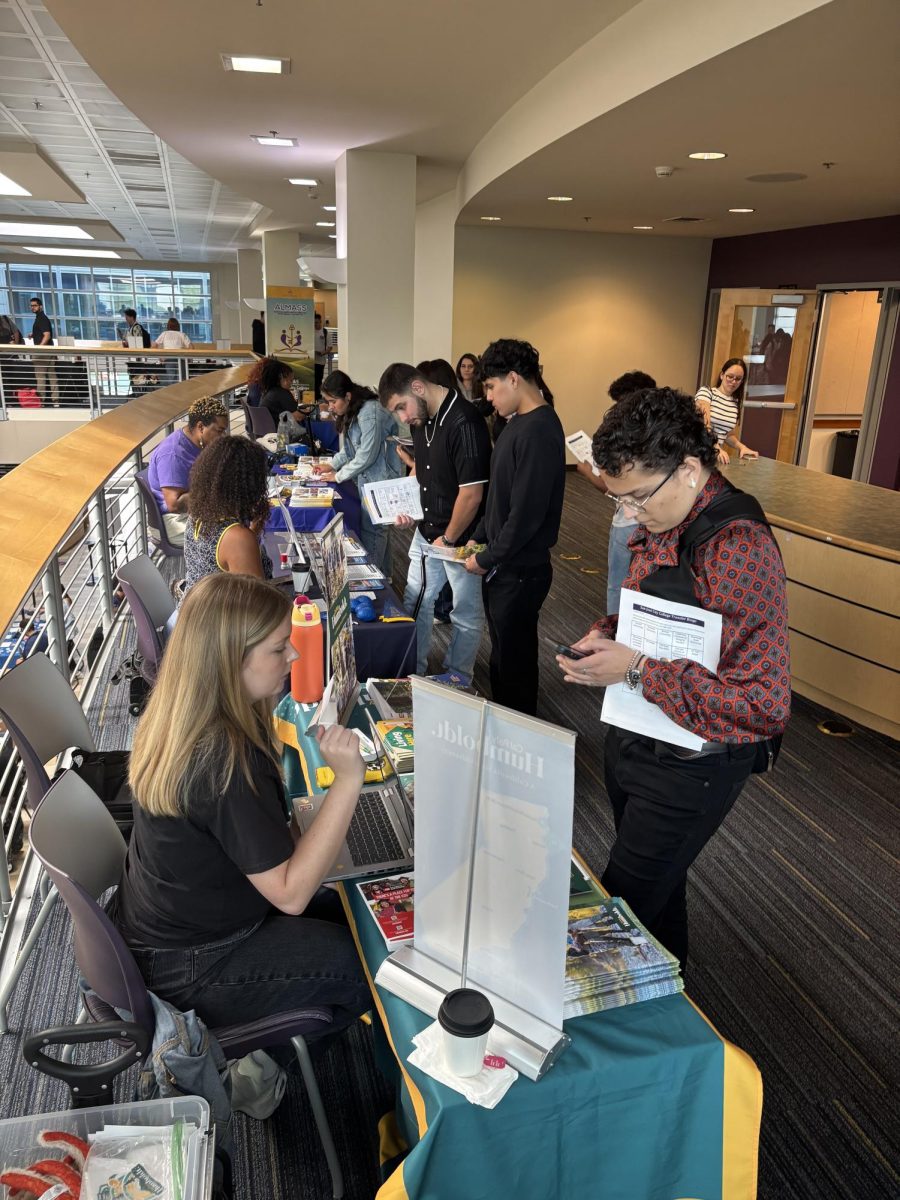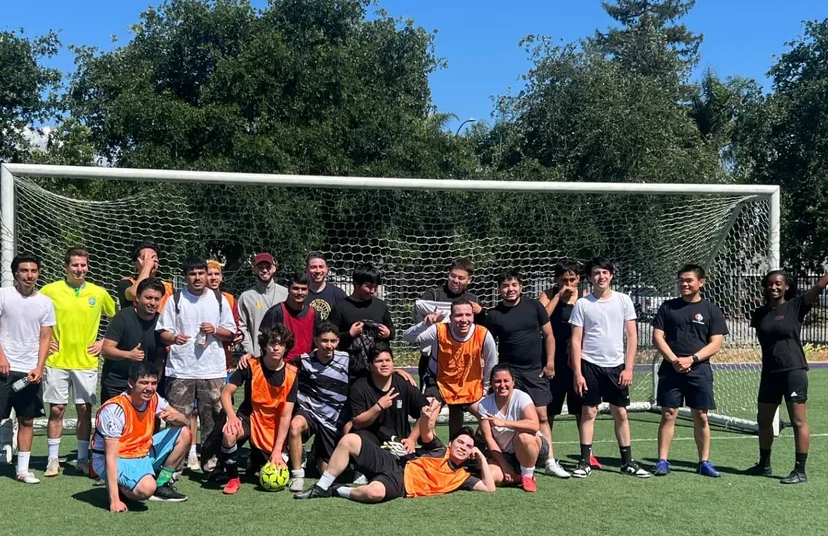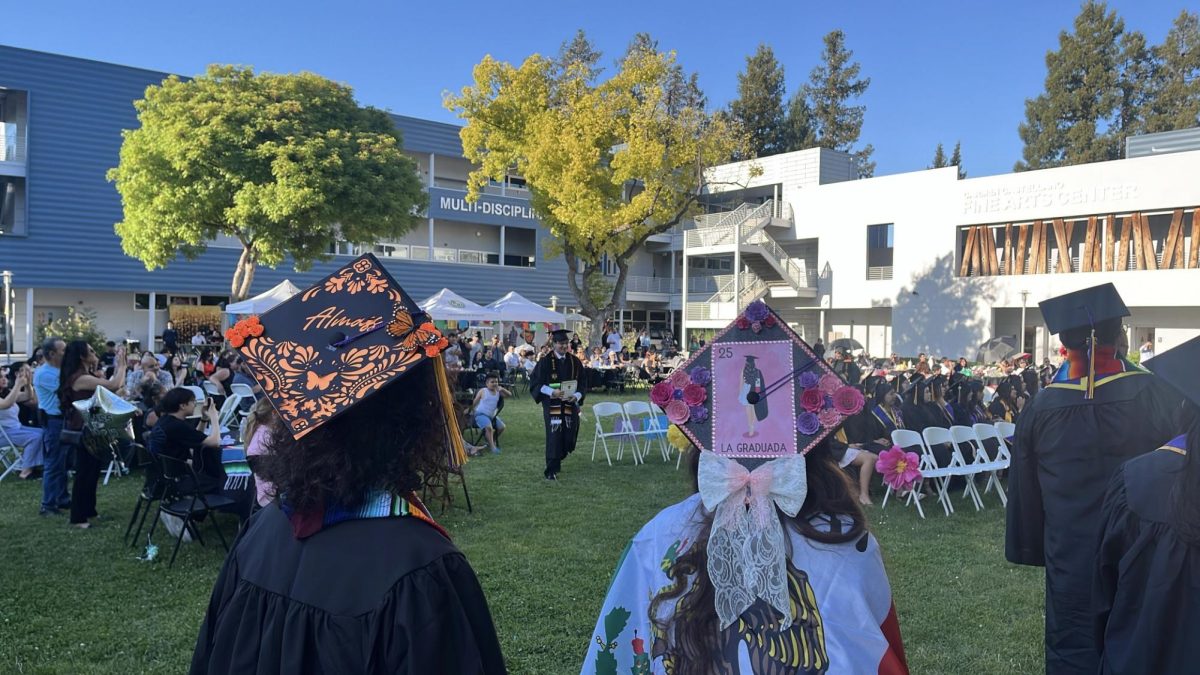Spreading awareness and offering training to students, faculty and staff
A rash of teen suicides across the U.S. in 2012 prompted San Jose City College to create the Safe Zone program, which provides training to support and raise awareness of Lesbian, Gay, Bisexual, and Transgender (LGBT) issues.
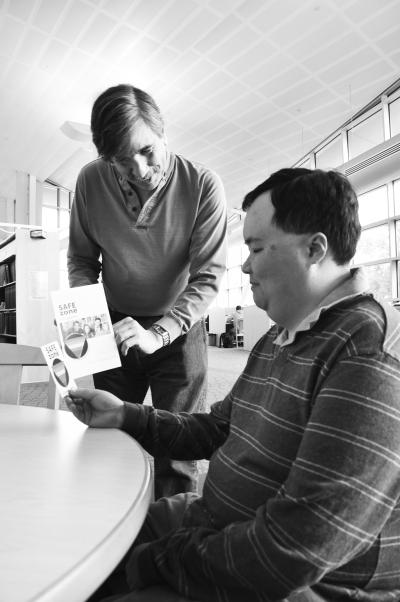
“According to a 2014 Centers for Disease Control study, LGBT students have the highest rate of suicide of any student group and are the most marginalized,” Safe Zone facilitator Joseph King said.
One component of the training is sensitivity and awareness for faculty and staff to assist LGBT students in need of help or support. Once trained, faculty and staff members receive a placard with the Safe Zone logo which they can hang in their office window or work area.
The Safe Zone placard signifies to community members that they are welcome and have a safe place to talk when support is needed.
Safe Zone also focuses on referring students to both on-campus and off campus resources as well as ways to reach out and let students know there is a place for them at SJCC.
“I had been the advisor to the GSA on campus in the mid-90s and been the main advocate for LGBT rights not only the students but for faculty,” King said. “It is time to pass this work on when I retire next year.”
Safe Zone celebrated National Coming Out Day on the evening of Oct. 8. This event included a wedding cake, a celebration, but also discussed the backlash LGBT people are facing after the Supreme Court’s ruling in favor of gay marriage.
People have been denying services to homosexuals at their businesses and banning them from entering establishments.
Safe Zone has trained the faculty and staff, now they are moving on to student training. The training is free, online and done anytime from any computer with internet access.
The online training is an animated interactive program similar to a role-play game where the trainee goes through simulations and makes dialogue choices while talking to other characters. The training takes between a half hour and an hour to complete and awards a printable certificate.
“This is for students, this is not about me; this is not about the faculty,” King said. “It’s about inclusivity, it’s about lack of discrimination, it is about them feeling that someone cares. It’s about their safety and their rights.”
King said the most difficult part is to get people on board. With any issue, there will be a core group of supporters but there will also be those who are not interested or are against it and choose not to participate. Participation is as easy as going online and taking the training course at any time.
“Part of the learning experience is self-discovery. Not just about the academic subjects but also how they relate in the world,” King said. “That is our goal; to educate students, for them to be successful, and establish their rightful place in the world.”
A list of resources for LGBT people and links to the online training program are available on the Safe Zone website.
Safe Zone Training
Safe Zone training is training in best practices on how to assist troubled LGBT students and is accessible to students, faculty and staff for free.
The training is through an animated simulation similar to a roleplay game where the user selects choices from a dropdown menu to interact with other characters.
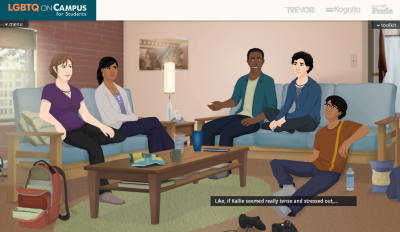
- Go to http://www.kognito.com/ccc
- Create an account.
- Choose your point of view.
- Select San Jose City College as your school
- Select LGBTQ Students on Campus and click “Launch”
- The program grants a certificate at the end.
This website also contains best practices videos for assisting students with mental illness and student veterans.
Meaning of some terminology based on the UCLA LGBT Resource Center list.
There are actually a large number of sexualities and gender identities; here is an incomplete list of common terms.
Sexuality:
- Lesbian: A female-identified person attracted romantically, sexually, and/or emotionally to other female-identified people.
- Gay: A man that identifies as male that is attracted to male partners. Also used to identify anyone who is attracted to the same gender.
- Bisexual: A person emotionally, physically, and/or sexually attracted to males/men and females/women. This attraction does not have to be equally split between genders and there may be a preference for one gender over others.
- Asexual: Person who is not sexually attracted to anyone or does not have a sexual orientation.
Gender Identity:
- Cisgender: Someone that identifies with the gender identity assigned at birth. (According to Time magazine, cis is Latin for “on the side of.”)
- Transgender: A person who identifies and/or lives as a member of a gender other than that expected based on anatomical sex. Sexual orientation varies and is not dependent on gender identity.
- MtF: A person born male who has a female gender identity.
- FtM: A person born female who has a male gender identity.
Resources for those in distress or need
For LGBT:
Billy DeFrank Community Center
Support Groups
(408) 293-3040
http://www.defrankcenter.org/
GLBT National Hotline
1 (888) 843-4564
http://www.glbthotline.org/
The Trevor Project
(Youth Lifeline)
1 (866) 488-7386
http://www.thetrevorproject.org/
Trans Lifeline
Hotline by trans for trans
1 (877) 565-8860
(Not 24/7, check site for operating hours.)
http://www.translifeline.org/
For anyone in crisis:
SJCC Psychological Services
On Campus Therapeutic Counseling
(408) 288-3724
United Way Silicon Valley Referral Line
(Food, housing, medical, etc.)
Call 211 or 1 (866) 896-3587
TTY: 1 (866) 896-3587
http://www.211scc.org/
Santa Clara County Mental Health Call Center
(Referral to mental health care)
1 (800) 704-0900
Santa Clara County Suicide and Crisis Hotline
1 (855) 278-4204
National Suicide Prevention Lifeline
1 (800) 273-8255
http://www.suicidepreventionlifeline.org/
NAMI Warm Line
1 (408) 453-0400 option 1
http://www.namisantaclara.org/

